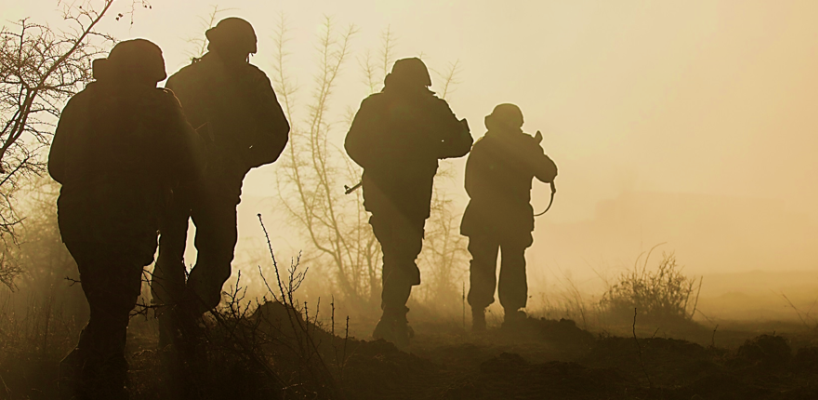Fifteen years ago Sunday, the United States suffered a spectacularly horrible terrorist attack that was felt around the world. The world still reverberates from buildings crashing to the ground that Tuesday morning. It still trembles at the immeasurable and enduring pain and suffering that haunts the globe. We are still at it. We’re mired in what was a justifiable war in Afghanistan that, in the end, may ultimately accomplish little that’s lasting.
COMBATING TERRORISM CENTRAL
In a few modest basement rooms in Lincoln Hall on Cullum Road at the United States Military, just beyond deep left of Doubleday Field to the west and a precipitous edge of the Hudson River to the east, the Combating Terrorism Center at West Point (CTC) works to stay on the cutting edge of terrorism research and theory. It’s mission is to serve “as an important national resource that rigorously studies the terrorist threat and provides policy-relevant research while moving the boundaries of academic knowledge.” This month, the CTC published the 100th edition of CTC Sentinel. Featured this memorial month is CTC’s interview with CIA Director John Brennan: “A View from the Foxhole.”
WHAT’S CHANGED
The natural question for Brennan is, are we safer after all this? The CTC asks a different question, how’s al-Qa`ida (AQ)? Now, a decade and a half later, thousands upon thousands of maimed and lives lost and children orphaned later, trillions and trillions of dollars later, Brennan’s answer is neither satisfying nor reassuring. In short, the impact of our effort has been negligible, at best. While AQ was located in central Afghanistan, today, Brennan reports, “it’s scattered in that area. But,” he adds, “we have other elements of al-Qa`ida that have sprung up—as you know, al-Qa`ida in the Arabian Peninsula [AQAP], we have Jabhat al-Nusra in Syria, al-Qa`ida in Syria.” Brennan continues, “So over the last 15 years, al-Qa`ida has been diminished as a result of the great pressure that we’ve put on them in Af-Pak. However, they were able to gain some strength in some of these other areas.” In the end, after a host of qualifiers and hedging, Brennan concedes that AQ “can carry out attacks with devastating consequences.”
TODAY’S THREAT
It’s worth noting that a discussion that we might think would center on AQ, who instigated the world-counterterrorism-war in which we’re engaged, quickly shifts to ISIS. Aside from AQ, a laundry list of terrorist organizations old and new have morphed, partnered, divided. Most notable and dangerous among them, so far, is ISIS, or ISIL. The direct descendent of AQ by way of AQ in Iraq, ISIS is AQ’s wayward child and center on the world’s stage. Brennan says, “ISIL has surpassed al-Qa`ida . . . . I would put ISIL much higher on the operational cadence scale as well as on the span of activity and the numbers of individuals who might, in fact, be used to carry out an attack against U.S. interests, whether it be in the region, whether it be in Europe, or whether it be over here.”
Once the conversation shifts to ISIS, it pretty much remains fixated on ISIS for the balance of the more than 6,000 word piece. Brennan makes clear that ISIS is a formidable threat, abroad and here in the United States, conducting both a centralized and decentralized operation with what Brennan calls its “franchises” on several continents. And Brennan seems particularly concerned with what he describes as ISIS’ “diversified investment portfolio . . . . it runs the gamut,” he says, “in terms of types of things that they’re trying to gain traction with.”
THE SITREP, IN SHORT
The 100th edition of CTC Sentinel is pretty all-encompassing. Beyond the interview with Brennan, Brian Jenkins works to answer the central question, “Fifteen Years On, Where Are We in the ‘War on Terror’?” Charles Lister considers “The Dawn of Mass Jihad.” Anne Stenersen looks at “Al-Qa`ida’s Comeback in Afghanistan and its Implications.” And writes about what he describes as “A Predictable Failure: The Political Economy of the Decline of the Islamic State.”
So, what has changed since our Nation was attacked and our military marched courageously and unhesitatingly into the darkness? “Everything’s changed,” as we said when we woke up on September 12, 2001. Come Sunday, September 11, 2016, everything’s still changing, and there’s no end in sight.



